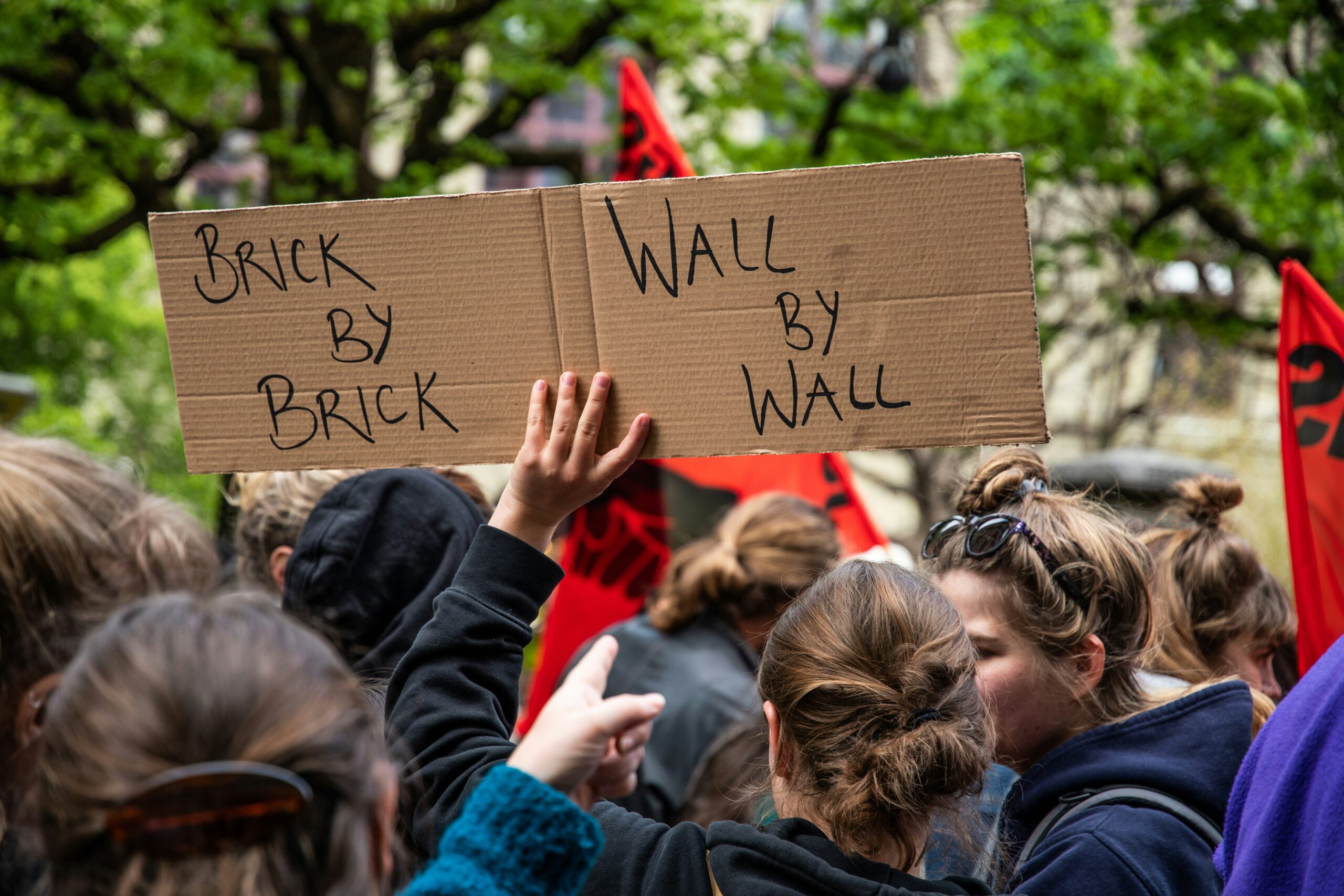Tunisia, Mauritania, Egypt – brick by brick, Fortress Europe takes shape

As the 2024 European elections approach, Europe’s highest authorities are pursuing their policy of outsourcing the management of migration. After Tunisia and Mauritania, it’s now Egypt‘s turn.
7.4 billion euro in economic aid in exchange for tighter border controls – that is Europe’s tantalising promise to Egypt. The partnership agreement signed on 17 March 2024 includes a budget of 200 million euro earmarked for migration. Although departures from Egyptian shores are relatively rare, the country occupies a strategic position at the crossroads of several migration routes caught between Libya, the Gaza Strip and Sudan.
“The timing of this outsourcing mechanism with Egypt is not insignificant. The European Union fears a massive influx of Palestinian refugees, fleeing the massacres perpetrated by the IDF in Gaza”, explains the French media outlet Politis.
Egyptian President Abdel Fattah al-Sissi is already “Europe’s new favourite dictator”, writes Mirco Keilberth in the German daily Die tageszeitung. It has to be said that al-Sissi doesn’t really have any other option: “The president […] aims to save the faltering economy of his country and its 106 million inhabitants with the agreed financing plan”, Keilberth writes. “The war in Gaza, falling tourism revenues and the collapse of the Egyptian pound have increased social tensions in the country in recent weeks.”
Les Egyptiens eux-mêmes pourraient être impactés par l’accord passé avec l’Union européenne, explique Bianca Carrera Espriu dans le Green European Journal (GEJ). “Fournir à un gouvernement extrêmement abusif une technologie de surveillance à double usage et une formation sur la manière de l’utiliser augmente le risque qu’elle soit utilisée pour la surveillance interne et le ciblage des opposants“, s’inquiète Claudio Francavilla, directeur adjoint du plaidoyer auprès de l’UE pour l’ONG Human Rights Watch au GEJ.
Egyptians themselves could be affected by the agreement with the European Union, explains Bianca Carrera Espriu in the Green European Journal (GEJ). Claudio Francavilla, deputy director of EU advocacy for the NGO Human Rights Watch, tells Carrera Espriu that “providing a highly abusive government with dual-use surveillance technology and training on how to use it heightens the risk that it may be used for internal surveillance and targeting of opponents”.
A string of agreements
En parlant d’accord, j’avais déjà abordé celui passé entre l’UE et la Mauritanie dans ma dernière revue de presse. L’encre n’est même pas encore sèche que le traité est déjà largement critiqué. Dans un article exhaustif pour Al Jazeera, Hassan Ould Moctar explique le caractère inédit de la situation : “Tout d’abord, le financement négocié est beaucoup plus important que les efforts d’externalisation précédents. […] Deuxièmement, alors que l’opposition à l’externalisation des frontières en Mauritanie s’est toujours limitée à une poignée d’organisations de la société civile, le dernier accord sur la migration a déclenché un tollé dans la société”, explique-t-il. Alors que les partis d’opposition y voient un plan pour réinstaller les “immigrants illégaux” dans le pays, la société civile critique, quant à elle, les efforts de l’UE visant “à faire de la Mauritanie le ‘gendarme de l’Europe’”.
I covered the agreement between the EU and Mauritania in my last press review. The ink is not even dry yet and the treaty is already being widely criticised. In an exhaustive article for Al Jazeera, Hassan Ould Moctar explains the unprecedented nature of the situation: “First, the negotiated funding is orders of magnitude larger than previous externalisation efforts. […] Second, while opposition to border externalisation in Mauritania has historically been confined to a handful of civil society organisations, the latest migration deal has sparked a societal uproar”, he explains. While opposition parties see it as a plan to resettle “illegal immigrants” in the country, civil society is critical of the EU’s efforts to “make Mauritania the ‘gendarme of Europe'”.
But the EU is already looking elsewhere.
On a visit to Cyprus, European Commission Vice-President Margaritis Schinas announced the next stage in the programme: an agreement similar to the one linking the bloc to Egypt, but this time with Lebanon. At issue are the arrivals of migrants from Syria. Although the text is still in the preliminary stage, the stakes are high for the island republic. “This month alone, authorities have registered 533 arrivals by sea, compared to 36 in March last year”, explains Reuters. For Nicosia, defining certain regions of the country ravaged by civil war as “safe” would enable the authorities to repatriate their citizens.
At a press conference, Schinas praised the country’s success in combating immigration, congratulating “little Cyprus” on emerging as “Europe’s repatriation champion”, reports the Greek daily Kathimerini.
Our policies and their consequences
In an article for POLITICO, the Council of Europe’s Commissioner for Human Rights Dunja Mijatović denounces the various human rights violations perpetrated against migrants and asylum seekers – within Europe’s own borders. For Mijatović, the most repressive policies send out a dangerous message. “It signals that the authority and independence of courts, along with access to justice and human rights, can be sacrificed when governments think it suits their policy priorities or electoral considerations”, she says.
Referring in particular to the practices of the United Kingdom and France, Mijatović is concerned about the knock-on effect these could have across the continent. A shift that would start with ” one that starts with denouncing the crucial role of checks and balances, then spills over into a direct threat to human rights, rule of law and, ultimately, the core values of democratic societies.”
“If the state is genuinely becoming so unwelcoming towards migrants, this situation is far from beneficial to French society. On the contrary, it is a source of major infringements of the rights and freedoms of all its members”, argues Vincent Sizaire for Manière de Voir (Le Monde Diplomatique). In addition to encouraging the development of human trafficking and the creation of a vulnerable and cheap labour force, French policies have made immigration law “a laboratory for extrajudicial coercive measures, which are then extended to all citizens”.
According to Sizaire, repressive practices are first tested on foreign nationals, before being applied to “categories of people […] considered dangerous”, up to and including individuals and groups wrongly or rightly described as “terrorists” – a remarkably flexible legal definition. “Concern for respecting the rights and freedoms of foreign nationals is therefore not just an expression of fraternity. It is also a commitment to the safety of all citizens”, he argues.
Translated by Ciarán Lawless






